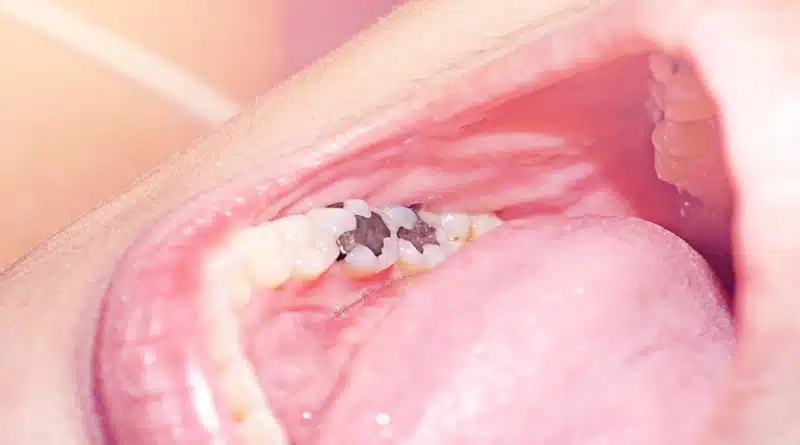Tooth sensitivity often feels like a sharp pain when you eat or drink something hot, cold, or sweet. This discomfort usually points to enamel damage or decay reaching the tooth’s inner layers. Sensitive nerves react to temperature or sugar, causing pain that lingers. Dental fillings can repair the damaged spot and stop this sensitivity from getting worse.
Pain While Biting or Chewing
If you feel pain when biting down, there may be a problem with your tooth. This pain often signals a cavity or crack. It can appear suddenly or when eating harder foods. Ignoring the discomfort could make the issue worse over time.
A dental filling can repair the weak spot in your tooth. It helps restore strength and relieves the pain. Fillings are a common solution for cavities and small fractures. Seeing a dentist early can prevent more serious dental problems.
Visible Spots, Holes, or Pits on Teeth
Dark spots or holes on your teeth are early signs that decay has likely begun forming. Even if you don’t feel pain right away, the damage can quickly become more serious. Bacteria in your mouth can erode enamel, creating small openings that weaken the tooth. These surface changes should not be ignored, as decay spreads faster than most people realize.
A dentist can carefully clean out the decayed area and stop the damage from worsening. They will often use fillings to restore the tooth’s shape and protect its inner layers. Fillings seal off the affected spot, preventing further bacterial growth and infection inside the tooth. Prompt treatment with fillings helps avoid the need for more complex dental procedures later on.
Constant or Frequent Tooth Pain
A persistent toothache is often a warning sign of a more serious dental issue that needs immediate attention. Whether the pain feels sharp, dull, or like a constant throb, it should never be dismissed or delayed. Ignoring such discomfort can allow the condition to worsen and potentially lead to complications that are harder and more expensive to treat. The type and intensity of the pain can help indicate how far the problem has progressed beneath the surface.
When tooth decay spreads deeper into the tooth, it can reach the pulp and cause severe inflammation or infection. While small cavities can often be treated with simple fillings, more advanced decay usually requires root canals or extractions. Prompt diagnosis by a dental professional can help determine the most effective treatment option to save the tooth. Addressing symptoms early increases the likelihood of avoiding more invasive and costly procedures later on.
Get Fillings Early
Healthy teeth help you eat comfortably, speak clearly, and smile with confidence in everyday social situations. Taking care of your oral health supports your overall well-being and self-esteem. When you pay attention to changes in your teeth, you give your dentist a chance to act early. Early detection makes treatments simpler, faster, and often less expensive in the long run.
Cavities caught early can usually be treated with a basic filling that restores strength and function to your tooth. Ignoring minor discomfort or unusual sensations may allow the problem to grow and become more serious. If you notice sensitivity, pain, or visible damage, don’t wait to schedule a dental visit. Acting quickly helps you avoid future complications and keeps your smile healthy and strong.

